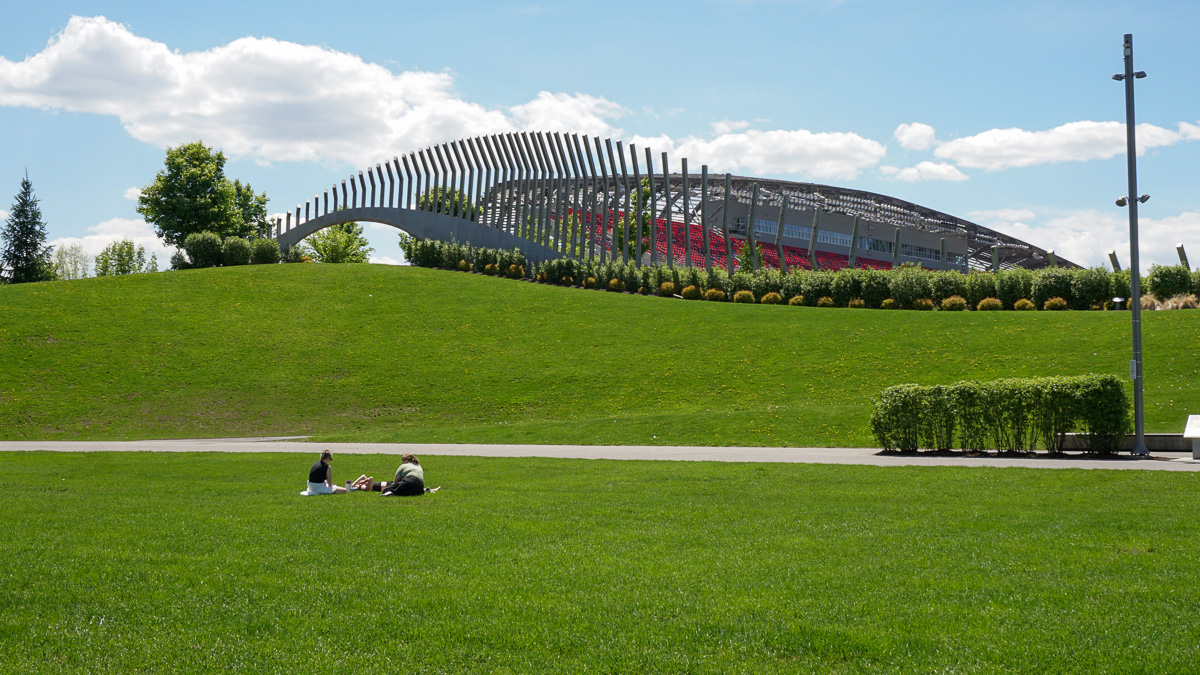Ottawa residents of legal drinking age appear likely to be allowed to crack open a cold one in a city park this summer — but not without a few restrictions.
On Tuesday, councillors on the city’s community services committee approved plans for a pilot program that would permit alcohol consumption in select parks as part of a revamped Parks and Facilities Bylaw.
Under an amendment moved by Somerset Coun. Ariel Troster, councillors would have the opportunity to work in consultation with the city’s general manager and their local communities to select eligible parks in each city ward for the pilot or opt out of the pilot altogether.
If passed at the June 11 meeting of full city council, the pilot would run from July 1 to Oct. 31 this year. Park-goers would only be permitted to drink between the hours of 11 a.m. and 9 p.m. and remain at least five metres away from playgrounds, pools, beaches, sports fields and other areas outlined on page 10 of the bylaw review document.
According to Dan Chenier, the city’s general manager of recreation, the aim of the review is to adopt a more “permissive” rather than “restrictive” approach to the parks bylaw, which was enacted in 2004.

Toronto adopted a similar pilot in 2023 and has since established a permanent alcohol in parks program, as permitted under the Liquor Licence Act of Ontario.
Although Chenier reported that informal pop-up surveys in parks where staff spoke to community members resulted in about 60 per cent of people expressing support for the idea, there was still some pushback.
Cheryl Parrott, a resident of Hintonburg, made a presentation to the committee voicing her concerns. Parrott lives near Somerset Square Park in Hintonburg, which is close to an LCBO.
Parrot said that drinking is already a problem in the park and worries that the pilot will worsen the situation.
“This seems like an enforcement nightmare,” she said.
Troster clarified that Kitchissippi Coun. Jeff Leiper — whose ward include Somerset Square — does not intend to make that park an alcohol-permitted area, and said there are similar issues at Dundonald Park in her ward, which is close to an LCBO and not in the running to be designated for legal drinking.

In January, the Ottawa Police Service made clear its position against allowing alcohol in parks.
“The OPS has significant concerns about the implications of this policy, which may undermine public safety,” Ottawa Police Chief Eric Stubbs stated in a letter to Chenier.
Capital Coun. Shawn Menard, who initially asked staff to consider a pilot program last year, raised the point that outdoor access to parks for leisure is a matter of equity for residents, especially in the urban core, where those living in apartments and condos have fewer options for enjoying a drink outdoors.
Troster shared a powerful experience she had in Somerset Ward’s McNabb Park during the pandemic.
“I’ll never forget the day that parks were officially reopened . . . and I went with my family to McNabb Park with a picnic blanket, and, yes, with a beer. And there were hundreds of people on picnic blankets out on that field, and it was bucolic. It was peaceful, it was very charming, and it was clear that this space is so valuable,” she said.
Along with proposed changes to alcohol consumption, the new bylaw would also permit fishing and canoe launching in parks, except where specifically prohibited, such as in swimming areas.
“We’ve taken a more pragmatic approach of allowing people to do things unless there’s a specific reason” to exclude such activities, said Chenier.
The committee voted unanimously to recommend that city council pass the amended bylaw review at its June 11 meeting.




